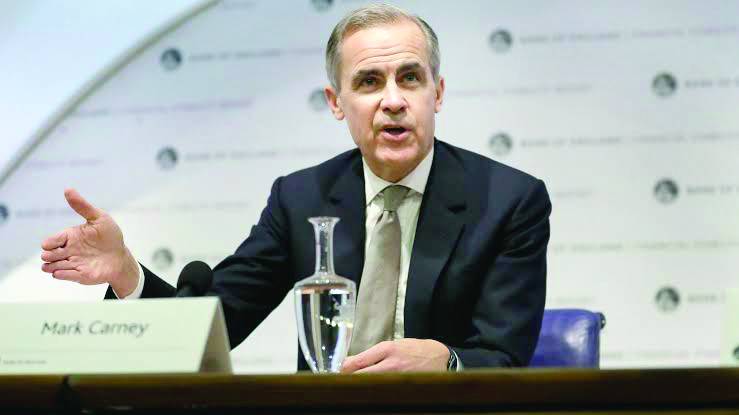LONDON - The world will face irreversible heating unless firms shift their priorities soon, the outgoing head of the Bank of England has told the BBC. Mark Carney said the financial sector had begun to curb investment in fossil fuels – but far too slowly.
He said leading pension fund analysis “is that if you add up the policies of all of companies out there, they are consistent with warming of 3.7-3.8C”.
Mr Carney made the comments in a pre-recorded BBC Radio 4 Today interview.
The interview, by presenter Mishal Husain, is one of several items on the programme which are focusing on climate change, on the day the show is guest edited by environmental campaigner Greta Thunberg. Mr Carney added that the rise of almost 4C was “far above the 1.5 degrees that the people say they want and governments are demanding”.
Scientists say the risks associated with an increase of 4C include a nine metre rise in sea levels - affecting up to 760 million people – searing heatwaves and droughts, and serious food supply problems.
Mr Carney, who will next year start his new role as United Nations special envoy for climate action and finance, continued: “The concern is whether we will spend another decade doing worthy things but not enough... and we will blow through the 1.5C mark very quickly. As a consequence, the climate will stabilise at the much higher level.” Speaking to the Today programme, he re-iterated his warning that unless firms woke up to what he called the climate crisis, many of their assets would become worthless.
“If we were to burn all those oil and gas [reserves], there’s no way we would meet carbon budget,” he said. “Up to 80% of coal assets will be stranded, [and] up to half of developed oil reserves.
“A question for every company, every financial institution, every asset manager, pension fund or insurer: what’s your plan?
“Four to five years ago, only leading institutions had begun to think about these issues and could report on them.
“Now $120tn worth of balance sheets of banks and asset managers are wanting this disclosure [of investments in fossil fuels]. But it’s not moving fast enough.”






